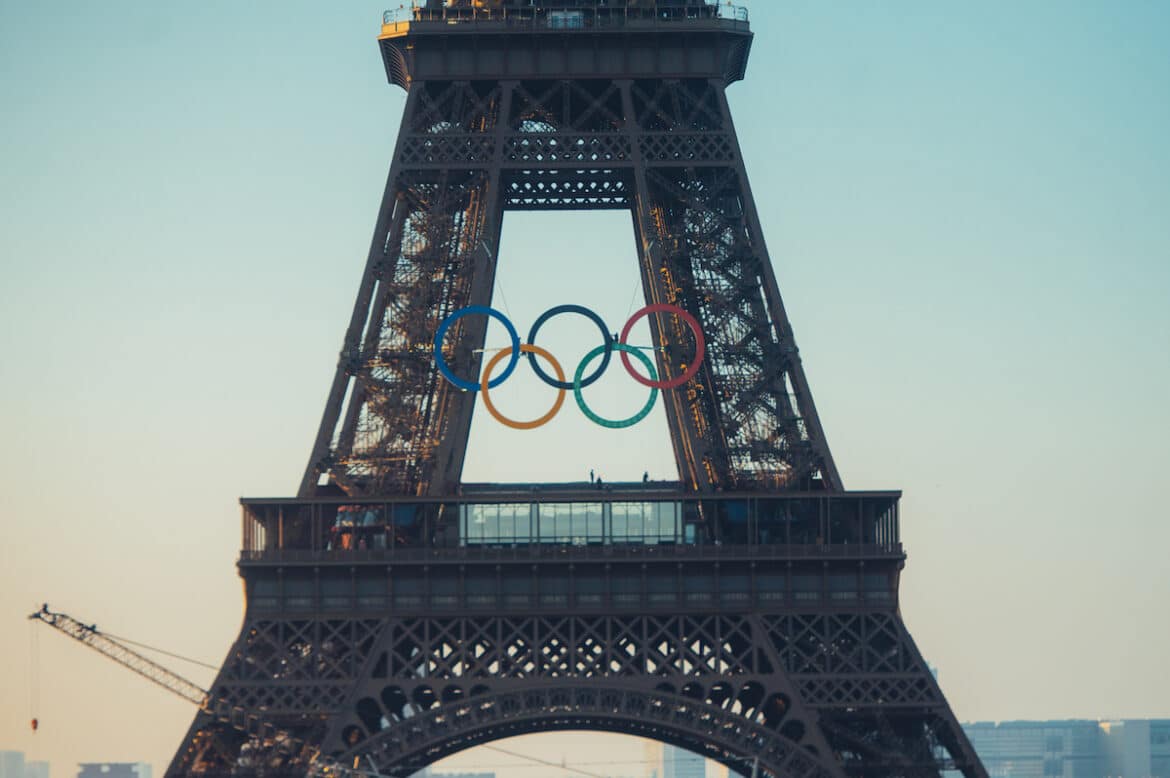Photo courtesy of Paris2024.org
In our July/August issue of the magazine, we dedicated our entire “Quoi de Neuf?” (What’s New?) column to the upcoming event on everyone’s minds… the Paris 2024 Summer Olympics!
SUBSCRIBE TO THE MAGAZINE
Expanding on the highlights featured in the magazine, here are some of the fun and fascinating things you can look forward to as well as interesting information that makes this year’s edition of the Olympic Games special and unique.
For more information on specific events, be sure to check out the official website www.paris2024.org.
1. The Torch Relay travels from Olympia, Greece to the host country and around its territories.
Every four years, the historic Olympic torch is lit in the Games’ founding city of Olympia, Greece and handed over to a team in Athens where it will begin its departure and tour of the Olympics hosting country. The symbolic purpose of the traveling flame this year is to pay tribute to the memory of the people who marked France’s history, honor the country’s natural heritage, showcase France’s ancestral creativity and know-how (or savoir-faire) and demonstrate the vitality of local sports and athletics.
Having arrived in Marseille on May 8th, the torch was passed through departments around the south and up the west of France before traveling overseas to the French territories around the world and came back to Nice on June 18th. After that, the torch has visited the remaining regions up the east and middle of the country. On July 14th, the tour arrives in Paris, kicking off the official Olympic Torch Relay around the city. Continuing on through the other departments of Île-de-France, the torch finally returns to its final destination in Paris on July 26th to launch the Opening Ceremony.
2. The Opening Ceremony (should) take place on the Seine River.
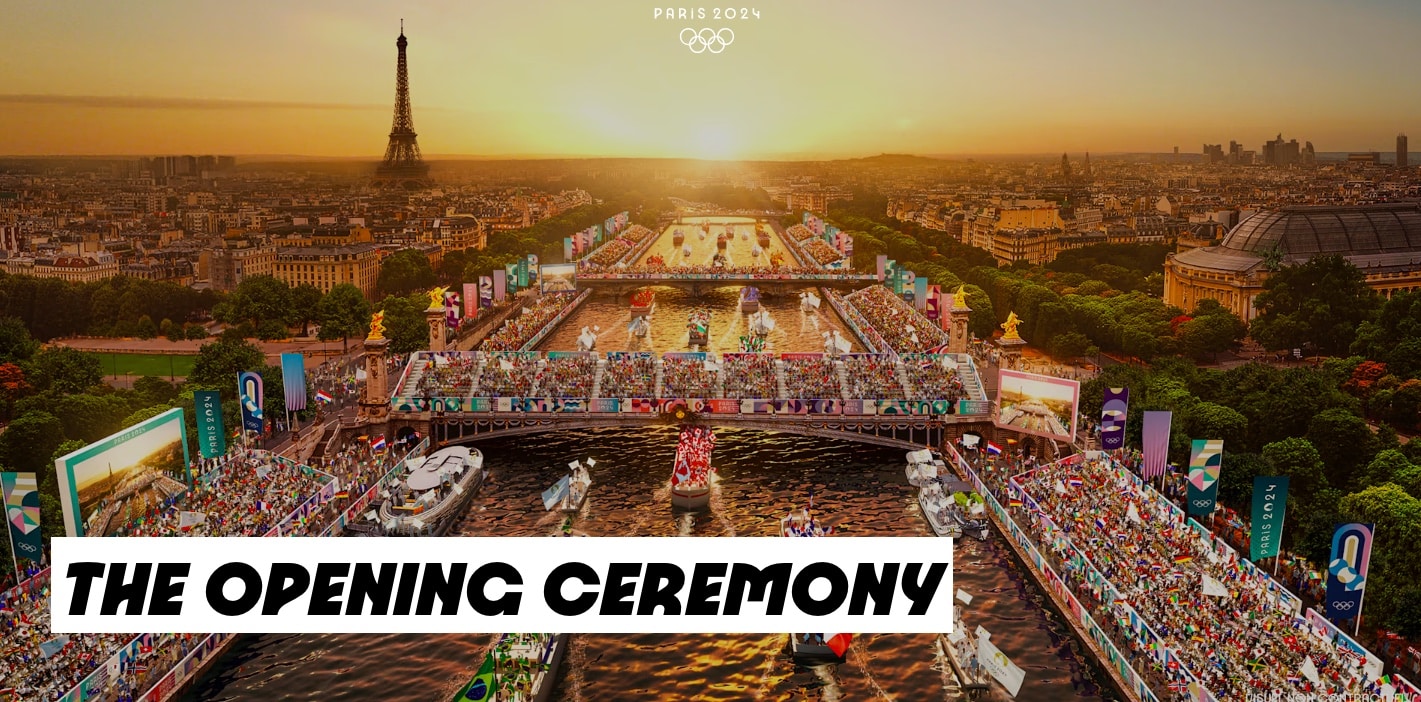
For the very first time in the history of the Summer Olympic Games, the Opening Ceremony will not be held in a stadium. Instead, Paris will launch the festivities with a boat parade down the Seine on July 26th. Floating 3 ½ miles through the heart of Paris, the 10,500 athletes, coaches, leaders and staff will make their way from the Austerlitz Bridge, near the Jardin des Plantes, and finish at the Iéna Bridge in front of the Eiffel Tower at Trocadéro.
However, with security being a top priority, France has a Plan B to host the ceremony exclusively in the Trocadéro square (where the boat parade is scheduled to culminate) and a Plan C to move the ceremony to the Stade de France – the biggest stadium in France – in case of any security threats.
3. This is the Centenary of the Olympic Games in France
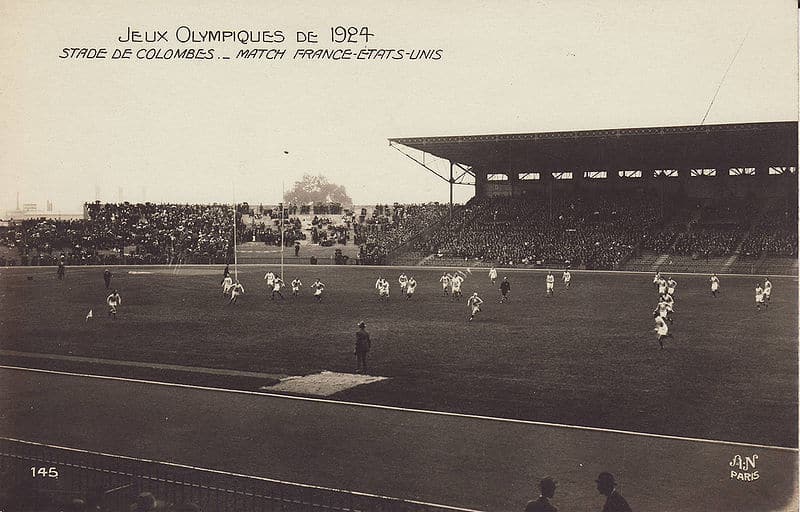
2024 marks 100 years since France hosted a particularly historic double feature Olympic event. In 1924, the Alpine village of Chamonix hosted the very first Winter Olympic Games, and a few months later, the Summer Olympics took place in Paris.
The first time that the Games were held here was in 1900, coinciding with that year’s World’s Fair. After Chamonix 1924, the Winter Olympics were held again in France in 1968 in Grenoble and in 1992 in Albertville. This July will be the third time the Summer Olympics returns to Paris.
4. This Olympics will be “breaking in” a new sport – Breakdancing!

Breaking (or Breakdancing) originated in the United States in the 1970s. After its resounding success as an exhibition sport at the Youth Olympic Games in Buenos Aires in 2018, the Olympic Committee has officially inaugurated it as a medal event for the Paris Games. The competition will be held in the Place de la Concorde, just outside of the Tuileries Gardens. Comprising two events – one for men and one for women – 16 “B-Boys” and 16 “B-Girls” will go head- to-head (perhaps on their heads) in solo battles for the gold.
Breaking will join the growing lineup of new sports introduced in Tokyo in 2020 that includes skateboarding, sport climbing and surfing.
5. Competitions will showcase existing Parisian landmarks
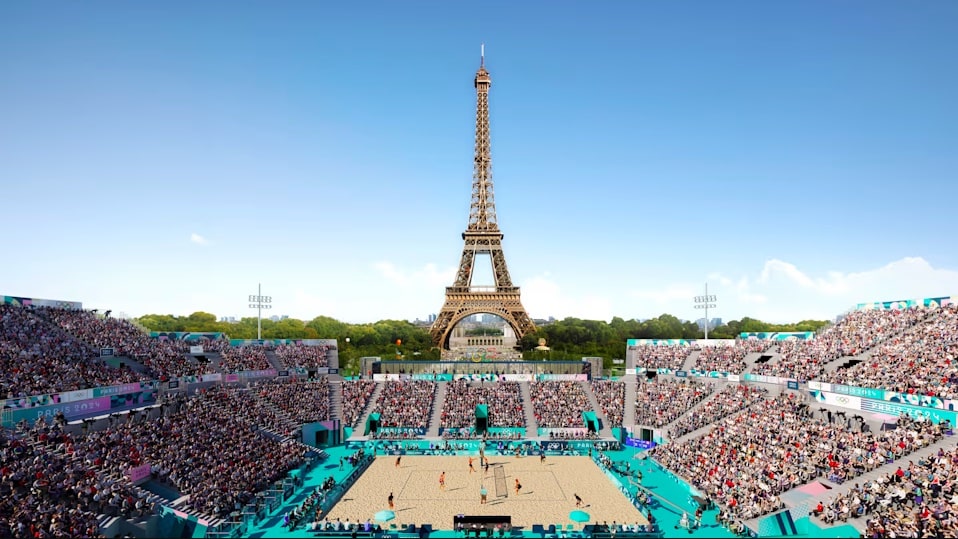
Instead of building entirely new stadiums and arenas like many countries have in the past for world sport matches, most Olympic events will happen in iconic pockets of the city, where its famous landmarks will make for dramatic backdrops. A large majority of the 32 Olympic and 22 Paralympic events will be held within 10 km (6 miles) of the Olympic Village in the northern suburb of Saint Denis.
Catch beach volleyball in the shadow of the Eiffel Tower as the players bump, set and spike on the Champ de Mars; marvel at the talent of urban sports athletes as they shred on ramps set up around the obelisk at Place de la Concorde; cheer on runners when they take off for the marathon at the Hôtel de Ville, and more. See all of the locations on the competition venue concept map on the Paris 2024 official website.
6. Games will be hosted not only in Paris, but around the nation.
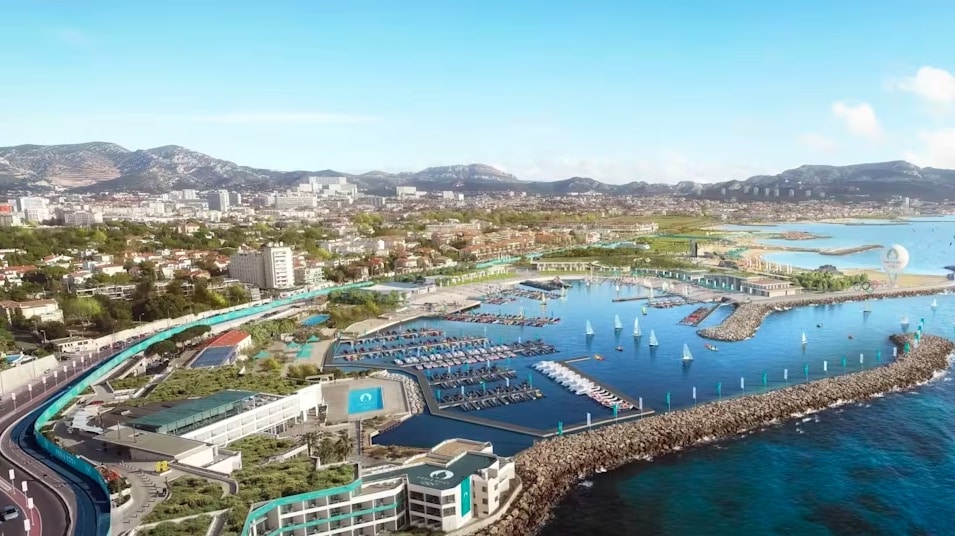
While the French capital will be the epicenter of the Games, competitions will be held all around the nation. The host country’s aim is to showcase the rich and diverse heritage of their land and culture.
One of France’s most popular sports, football (or soccer), will be held in existing stadiums across the regions of Bordeaux, Nantes, Lyon, Saint-Etienne, Nice and Marseille. Marseille will also host the Games’ sailing events in the Mediterranean Sea. Meanwhile in the north, Lille will have team sports like basketball and handball.
7. Olympic Surfing will be hosted in France’s overseas territory

Introduced as an Olympic sport in the Tokyo 2020 Games, surfing returns to Paris 2024 in an impressive fashion. For the first time in Olympics history, the host city is staging an event in one of its overseas territories… 12 time zones away! Teahupo’o Beach in Tahiti will be the venue for this year’s surfing competition – one of the most impressive wave destinations in the world.
8. The Iconic Olympics and Paralympics Poster designs have been combined into one continuous piece.
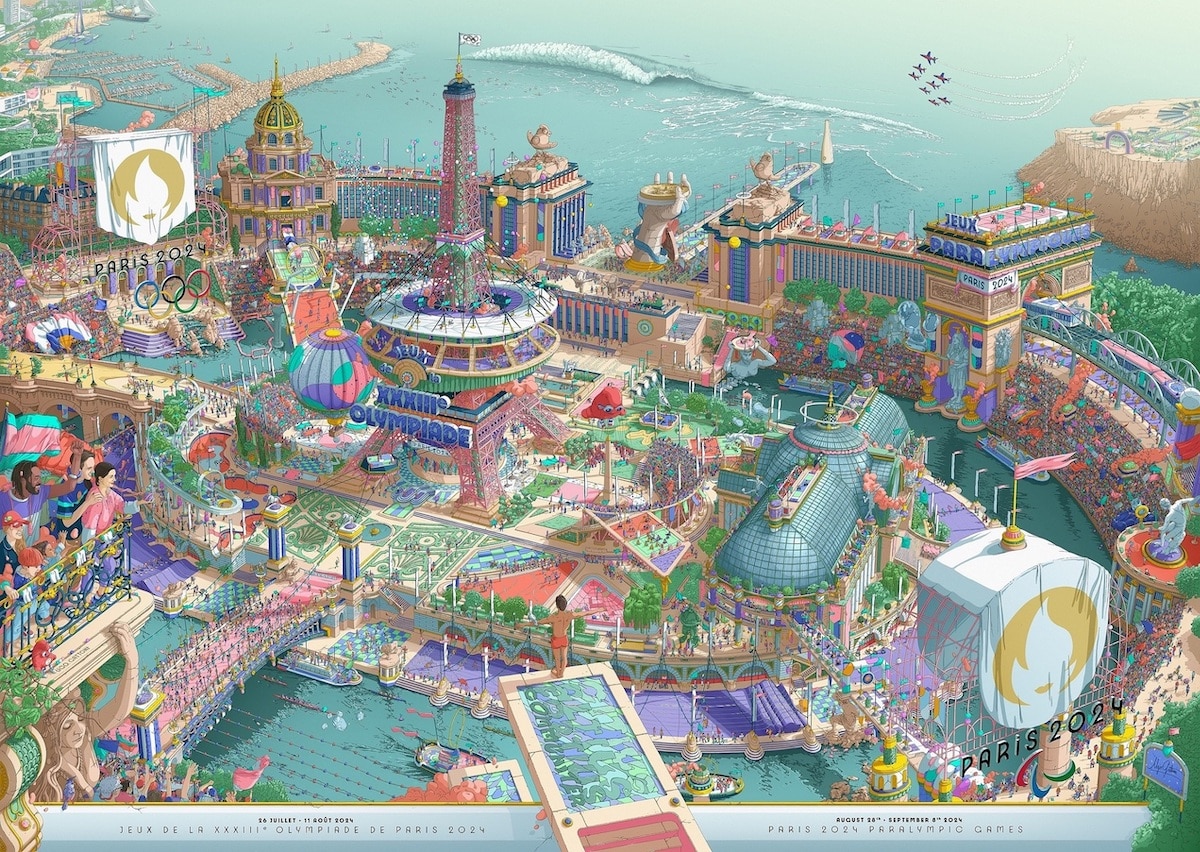
Ever since the Stockholm Games in 1912, the Olympics Organizing Committee has commissioned a poster design that is meant to showcase the symbols of the host country and illustrates the spirit of what the competition represents. For Paris 2024, Ugo Gattoni, a French illustrator, was put to the challenge – and made sure not to leave out any detail! His characteristic style, marked by fantasy and surrealism, illustrates the complex yet vibrant spirit of the event.
In keeping with the theme, “Games Wide Open,” Gattoni – who has worked previously with French luxury fashion houses – produced a pair of complementary poster designs for the Olympics and Paralympics. This is the first time in Olympics history that the two posters have ever been combined into one design!
9. The Olympic Mascot is a Phrygian Cap.
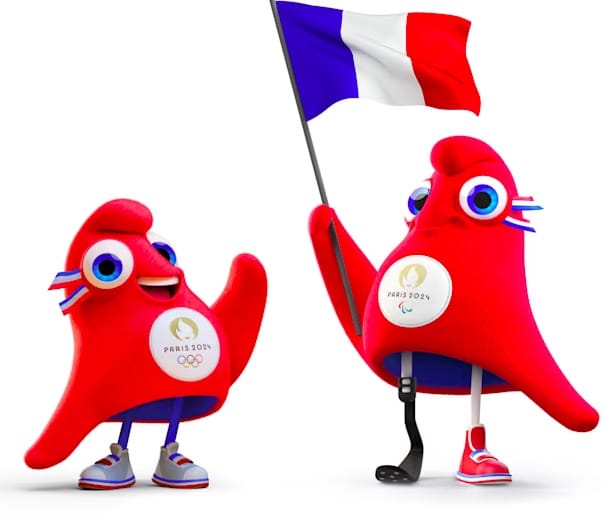

The design team for each Olympic Games must come up with a fun yet symbolic mascot to cheer on the athletes and represent the spirit of the host country. With liberty and freedom at the heart of French identity, Paris made a somewhat unconventional choice: an anthropomorphized Phyrgian cap. This iconic headgear – originally worn by freed Roman slaves – is best known from depictions of Marianne, an allegorical figure symbolizing liberty whose visage adorns every French town hall.
10. Visitors can meet the athletes and catch performances every day at Champions Park.
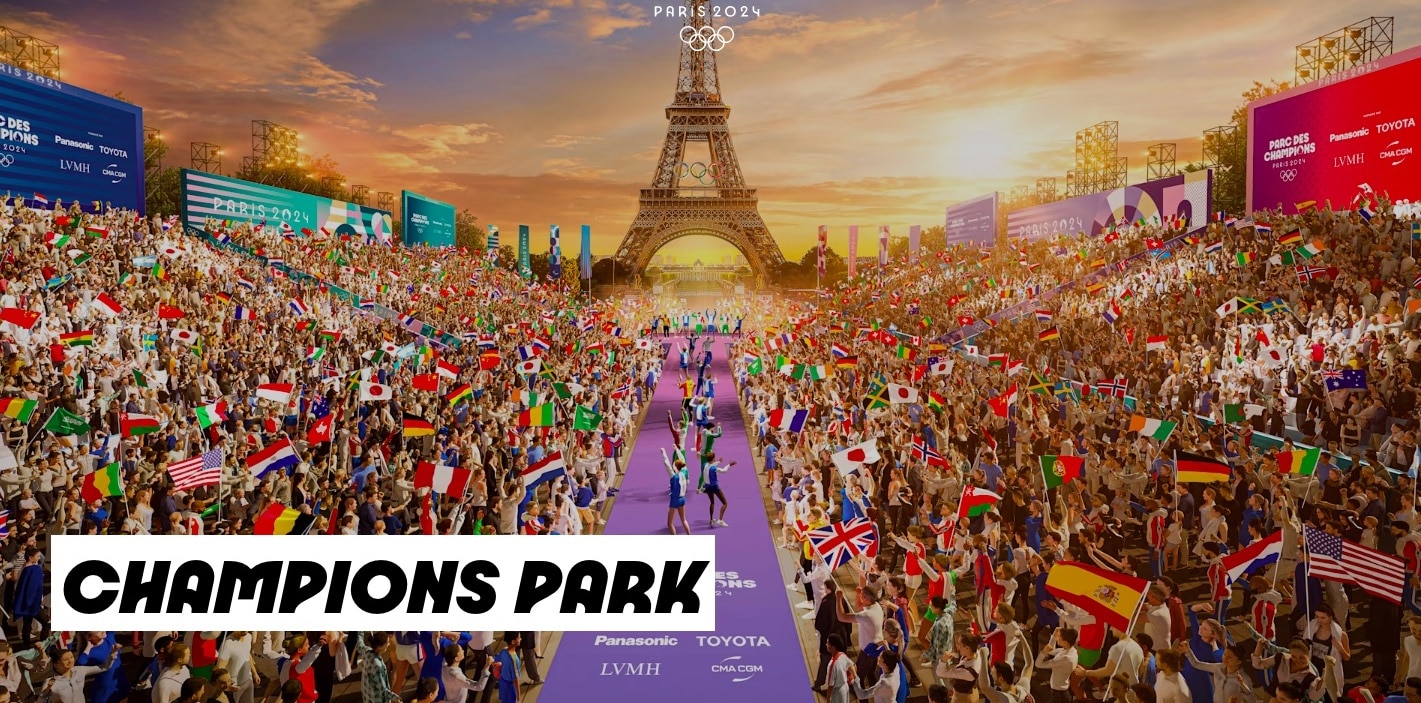
Champions Park, in front of the Eiffel Tower at Trocadéro, will offer locals, visitors, and spectators the opportunity to meet Olympic athletes and witness unique artistic performances every evening beginning at 5:30 p.m. Free to all and no ticket required, this is a great way to participate in the communal energy of the Games. In the park, there will also be giant screens broadcasting the major sporting events live from 7:30 to 11:30 p.m. every night.
If you’re planning on attending the Paris Olympic Games, we hope you have a safe and unforgettable time! If you’re watching from afar and get the itch to come to France, be sure to check out our MFCH Travel website to get you prepared for your next trip.
